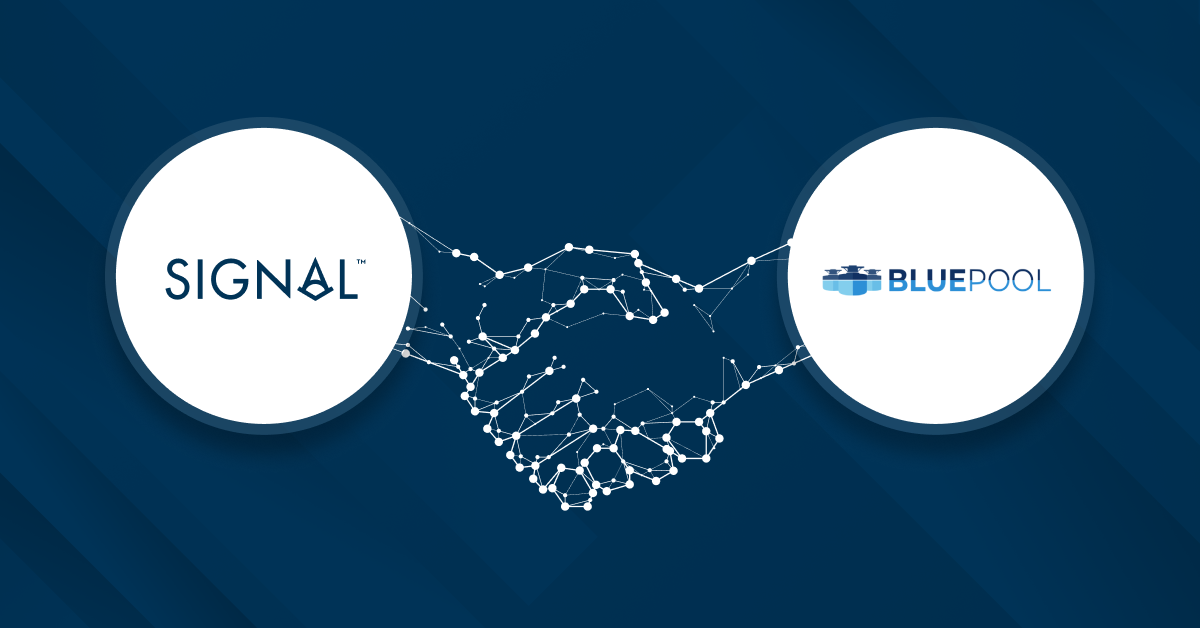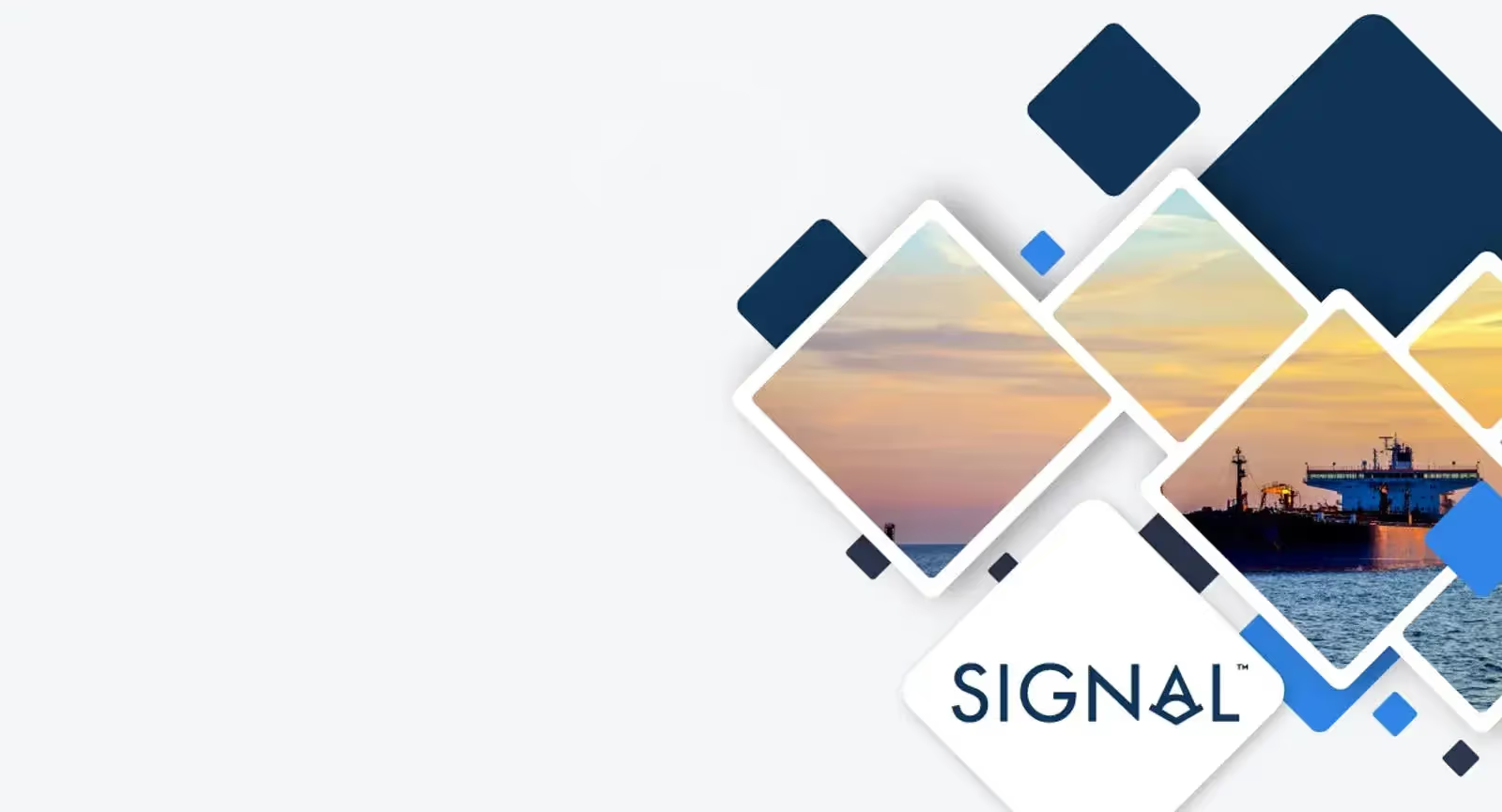Signal Ocean and General Index Forge Partnership for New Maritime Benchmarks
Leading benchmark provider, General Index, and maritime data specialist and software platform, Signal Ocean, have today (6 June) signed an agreement to publish a revolutionary set of ocean freight and CO2 benchmarks. The new benchmarks will provide a series of unique indexes which combine Signal’s vessel and voyage data with General Index’s quantitative and well-established methodologies.
This combination will deliver market participants with an accurate view of fluctuating freight rates as well as allow them to monitor their historical and estimated vessel emissions and quantify the financial cost of these emissions.
Using its tuned models, Signal will provide detailed estimates of greenhouse gases emitted on a vessel-by-vessel basis.
The service will cover the key global trading routes for crude oil and refined products, starting in the Atlantic Basin. General Index will operate the benchmarks via its tech-native methodologies and production systems, incorporating trade information from its data contributors. The ocean freight and CO2 benchmarks are the first phases of an ambitious plan of collaboration between the two firms.
The move comes ahead of the expected entry of shipping into the European Union’s Emissions Trading System in 2023. The collaboration will provide the industry’s first normalised emissions benchmark allowing shipowners and charterers to trade CO2 emissions.
“Signal Ocean, like General Index, is a data-driven technology company that uses high-quality data and trusted modeling. We’ve combined this with decades of market knowledge and experience as a commercial vessel operator to create a unique set of data APIs that help solve a number of persistent problems in the analysis of shipping markets. Partnering with General Index will allow us to provide new tools to help market participants better understand their emissions performance and manage their financial exposure.” - Ioannis Martinos, CEO, Signal Group
“Partnering with the Signal team allows us to leverage our benchmark technology and expertise to create relevant indexes which will support the maritime industry as its energy transition journey accelerates. With maritime coming under the EU’s Emissions Trading System (ETS) in January 2023, the time is right to partner with Signal Group, a recognised authority in the maritime industry.” - Neil Bradford, CEO and Founder, General Index
Signal Ocean’s services are already used by shipowners, traders and energy majors who control around half of the world’s crude oil spot tonnage and cargoes to support their chartering decisions. Dry bulk voyages are also covered by Signal Ocean, while containers and LNG/LPG are currently being tested with design clients.
Launched in March 2020, General Index is authorised by the UK’s Financial Conduct Authority (FCA) as a benchmark administrator and is compliant with EU Benchmark Regulation. It offers high-quality assessments for established commodity markets and new innovative solutions using its technology-native approach.
More information will follow regarding the scope and future release of the new indexes.
For the latest updates and insights, make sure to visit the Signal Ocean Newsroom website page. Click here to request a demo.

Creating a sustainable world requires us to embark on a journey towards a zero emission future, where every step is a commitment to preserve our planet for future generations.
Albert Greenway
Environmental Scientist, Sustainability Expert
Increased Use of Renewable Energy:
Shipping companies are embracing renewable energy sources to power onboard systems and reduce emissions during port operations. Solar panels and wind turbines are being installed on vessels to generate clean energy, reducing reliance on auxiliary engines, and cutting down emissions. Shore power facilities in ports allow ships to connect to the electrical grid, eliminating the need for onboard generators while docked.
Collaboration and Industry Partnerships:
Recognizing that addressing emissions requires collective action, shipping companies, governments, and organizations have formed partnerships and collaborations. These initiatives focus on research and development, sharing best practices, and promoting knowledge transfer. Joint projects aim to develop and deploy innovative technologies, improve infrastructure, and create a supportive regulatory framework to accelerate the industry's transition towards a greener future. The Zero Emission Shipping - Mission Innovation.
To pave the way for a greener future in shipping, the availability of alternative fuels plays a vital role in their widespread adoption. However, this availability is influenced by factors such as port infrastructure, local regulations, and government policies. As the demand for cleaner fuels in shipping rises and environmental regulations become more stringent, efforts are underway to improve the accessibility of these fuels through infrastructure development, collaborations, and investments in production facilities.
Liquefied Natural Gas (LNG) infrastructure has seen significant growth in recent years, resulting in more LNG bunkering facilities and LNG-powered vessels. Nonetheless, the availability of LNG as a marine fuel can still vary depending on the region. To ensure consistent availability worldwide, there is a need for further development of LNG supply chains and infrastructure. For biofuels, their availability hinges on production capacity and the availability of feedstock. Although biofuels are being produced and utilized in various sectors, their availability as a marine fuel remains limited. Scaling up biofuel production and establishing robust supply chains are imperative to ensure wider availability within the shipping industry.Hydrogen, as a fuel for maritime applications, is still in the early stages of infrastructure development. While some hydrogen vessels have been tested or introduced in the first quarter of last year, the infrastructure required for hydrogen production and distribution needs further advancement.
Ammonia, as a marine fuel, currently faces limitations in availability. The production, storage, and handling infrastructure for ammonia need further development to support its widespread use in the shipping industry.Methanol, on the other hand, is already a commercially available fuel and has been used as a blend with conventional fuels in some ships. However, its availability as a standalone marine fuel can still be limited in certain regions. Bureau Veritas in October 2022 published a White Paper for the Alternative Fuels Outlook. This white paper provides a comprehensive overview of alternative fuels for the shipping industry, taking into account key factors such as technological maturity, availability, safety, emissions, and regulations.

Creating a sustainable world requires us to embark on a journey towards a zero emission future, where every step is a commitment to preserve our planet for future generations.
Albert Greenway
Environmental Scientist, Sustainability Expert
Increased Use of Renewable Energy:
Shipping companies are embracing renewable energy sources to power onboard systems and reduce emissions during port operations. Solar panels and wind turbines are being installed on vessels to generate clean energy, reducing reliance on auxiliary engines, and cutting down emissions. Shore power facilities in ports allow ships to connect to the electrical grid, eliminating the need for onboard generators while docked.
Collaboration and Industry Partnerships:
Recognizing that addressing emissions requires collective action, shipping companies, governments, and organizations have formed partnerships and collaborations. These initiatives focus on research and development, sharing best practices, and promoting knowledge transfer. Joint projects aim to develop and deploy innovative technologies, improve infrastructure, and create a supportive regulatory framework to accelerate the industry's transition towards a greener future. The Zero Emission Shipping - Mission Innovation.
To pave the way for a greener future in shipping, the availability of alternative fuels plays a vital role in their widespread adoption. However, this availability is influenced by factors such as port infrastructure, local regulations, and government policies. As the demand for cleaner fuels in shipping rises and environmental regulations become more stringent, efforts are underway to improve the accessibility of these fuels through infrastructure development, collaborations, and investments in production facilities.
Liquefied Natural Gas (LNG) infrastructure has seen significant growth in recent years, resulting in more LNG bunkering facilities and LNG-powered vessels. Nonetheless, the availability of LNG as a marine fuel can still vary depending on the region. To ensure consistent availability worldwide, there is a need for further development of LNG supply chains and infrastructure. For biofuels, their availability hinges on production capacity and the availability of feedstock. Although biofuels are being produced and utilized in various sectors, their availability as a marine fuel remains limited. Scaling up biofuel production and establishing robust supply chains are imperative to ensure wider availability within the shipping industry.Hydrogen, as a fuel for maritime applications, is still in the early stages of infrastructure development. While some hydrogen vessels have been tested or introduced in the first quarter of last year, the infrastructure required for hydrogen production and distribution needs further advancement.
Ammonia, as a marine fuel, currently faces limitations in availability. The production, storage, and handling infrastructure for ammonia need further development to support its widespread use in the shipping industry.Methanol, on the other hand, is already a commercially available fuel and has been used as a blend with conventional fuels in some ships. However, its availability as a standalone marine fuel can still be limited in certain regions. Bureau Veritas in October 2022 published a White Paper for the Alternative Fuels Outlook. This white paper provides a comprehensive overview of alternative fuels for the shipping industry, taking into account key factors such as technological maturity, availability, safety, emissions, and regulations.











































